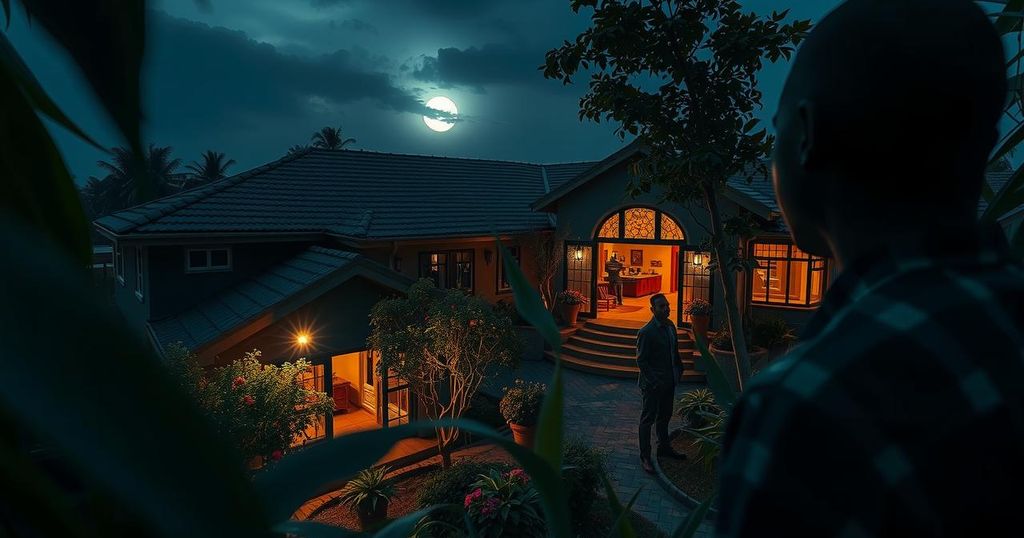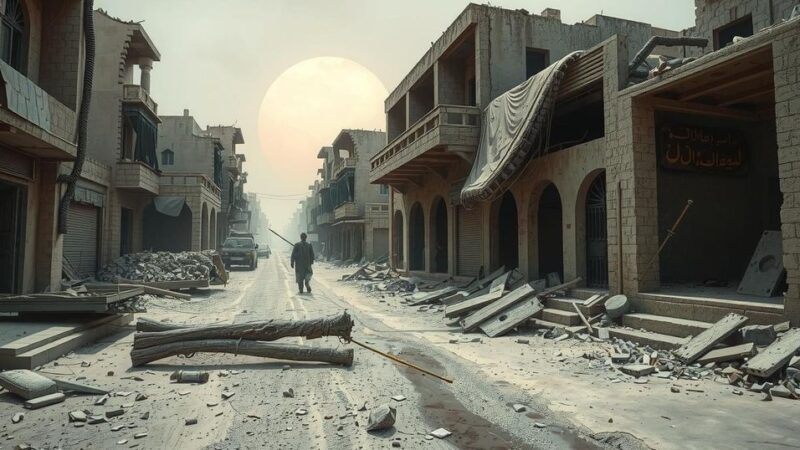An investigation is underway following a shootout at the residence of former spy chief Akol Koor in South Sudan, who was dismissed amid coup rumors. The shooting lasted about an hour, with military forces surrounding his home. Koor’s dismissal and the subsequent unrest reflect the ongoing power struggles and instability within the nation, exacerbated by delayed elections and the aftermath of civil war.
South Sudan’s security forces are currently conducting an investigation into a shooting incident that occurred at the residence of former spy chief Akol Koor, who was dismissed nearly two months ago amidst allegations of a potential coup. The gunfire erupted on Thursday evening in Juba, the capital of South Sudan, which continues to grapple with internal power struggles, ethnic conflicts, and significant economic challenges. Reports indicate that the exchange lasted for approximately one hour and involved a substantial military presence surrounding Koor’s home, located in the Thongpiny district.
Despite the recent violence, daily life has resumed as normal in the area. Initial reports suggested that Koor had been arrested following intense clashes that may have resulted in casualties among his soldiers. However, spokesperson for South Sudan’s People’s Defence Forces, Lul Ruai Koang, clarified that Koor remains under house arrest and has not fled to a United Nations compound as circulating rumors suggested. Police spokesperson John Kassara confirmed that while the situation is now calm, the area surrounding Koor’s residence remains secured, and residents have been advised to stay vigilant.
The incident highlights the tension within the nation’s leadership, particularly after Koor’s removal from his position as head of the National Security Services, a role he held since South Sudan’s independence in 2011. His dismissal sparked speculation regarding his involvement in an attempted coup against President Salva Kiir, especially given the postponement of elections that have now been deferred until December 2026. This delay has further exacerbated existing frustrations within the international community, which has been urging the South Sudanese administration to advance the transition process, including efforts to unify rival military factions and establish a comprehensive constitution.
Beyond this immediate crisis, South Sudan is enduring the long-term effects of a devastating civil war that claimed around 400,000 lives and displaced millions between 2013 and 2018. It remains one of the most impoverished and corrupt nations globally, facing ongoing instability and vulnerability to climate-related disasters.
The recent shootout at Akol Koor’s home in South Sudan is indicative of the country’s tumultuous political landscape, marked by power struggles and recurring violence. South Sudan, which gained independence in 2011, has been plagued by persistent instability since its civil war, dividing the country along ethnic lines and leading to widespread suffering. The dismissal of Koor from his influential position as head of the National Security Services raises significant concerns about the internal dynamics within the government and the potential for further unrest as the nation prepares for delayed elections.
In summary, the investigation into the shooting at former spy chief Akol Koor’s home underscores the fragile state of security and governance in South Sudan. The unfolding circumstances highlight the deep-seated political tensions and the challenges the country faces in moving forward with its transitional processes. With the international community’s continued scrutiny and pressure, the future stability of South Sudan remains uncertain as it navigates a complex web of political intrigue and societal unrest.
Original Source: www.rfi.fr






